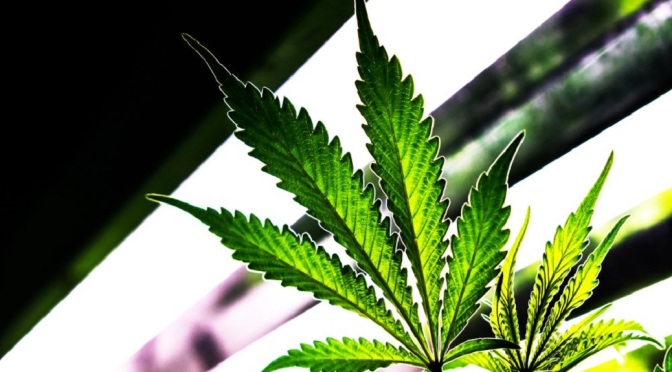By Claire Bernish, The Mind Unleashed
Vindication, yet again, for advocates of cannabis, as the results of a new study evince plummeting violent crime rates in U.S. states along the border with Mexico, where weed was made legal for medical reasons.
Yet, federal pot prohibition continues.
Study co-author and Professor Evelina Gavrilova told The Independent Medical Marijuana Laws [MMLs] “allow people to grow and cultivate marijuana plants legally within the US.
“This means that people don’t need to buy illegal marijuana anymore so drug trafficking organisations have far fewer customers.”
Mexican cartels — occasionally assisted by various United States Government agencies — had for decades relied on cannabis’ illegality north of the border to ensure a healthy black market, steady profit stream, and a broad spectrum of control through bloody enforcement. With weed gaining unprecedented public and state-level legislative support — not just for medical use, but recreational — drug traffickers find their bread-and-butter base evaporating.
Without demand for illegal pot, the crimes associated with its illicit status also vanish — a point of simple logic, long heralded by pro-cannabis advocates the world over — now resolutely proven by researchers in the new study.
“The cartels are in competition with one another,” Gavrilova told the Guardian. “They compete for territory, but it’s also easy to steal product from the other cartels and sell it themselves, so they fight for the product. They also have to defend their territory and ensure there are no bystanders, no witnesses to the activities of the cartel.
“Whenever there is a medical marijuana law we observe that crime at the border decreases because suddenly there is a lot less smuggling and a lot less violence associated with that.”
Summarizes the Washington Free Beacon of the Royal Economic Society research,
“To determine the effect of medical marijuana laws on violent crime rates, the study authors performed three comparisons: They studied crime rates in counties before and after the introduction of medical marijuana; then between counties with and without medical marijuana; and finally, between counties at the border and further inland.”
Researchers found robberies reduced by 19 percent; murders, 10 percent; and assaults, 9 percent, among border states with legal medical cannabis. But the most eye-popping statistic serves handily as a nail in the drug war’s much-deserved coffin: drug-related homicides in counties situated 350 kilometers (217.48 miles) or closer to Mexico plunged 40.6 percent.
“We find that when a neighbour to a Mexican border state passes a MML … this results in a significant reduction in violent crime rates in the border state,” the review found, as cited by the Free Beacon. “More generally, we find that when a state passes a MML this reduces crime rates in the state in which the nearest Mexican border crossing is located. This evidence is consistent with our hypothesis that MMLs lead to a reduction in demand for illegal marijuana, followed by a reduction in revenue for Mexican [drug trafficking organizations], and, hence, a reduction in violence in the Mexican-border area.”
“As revenues decrease,” the study plainly states, “so does the incentive to invest in violent activity.”
“When the effect on crime is so significant, it’s obviously better to regulate marijuana and allow people to pay taxes on it rather than make it illegal,” Gavrilova continued. She added,
“For me it’s a no brainer that it should be legal and should be regulated, and the proceeds go to the Treasury.”
While the positive effects of legal cannabis — reduced violent crime, emptying prisons and jails of nonviolent offenders, revitalization of infrastructure through taxation, and more — cannot be denied, as the study author unwittingly points out, the entire debate has been framed under the premise of State involvement.
Had the United States not championed the eradication of veritably all intoxicants from the planet as a modern-day moral conquest — however innately veiled in racist, conservative politics that War on Drugs was conceived — such statistics and studies wouldn’t be necessary.
In short, the government’s obsession with control — not the ingenuous cannabis plant — can be pegged as the bare root of the violence in this study.
Image: Doug Shutter/Shutterstock.

